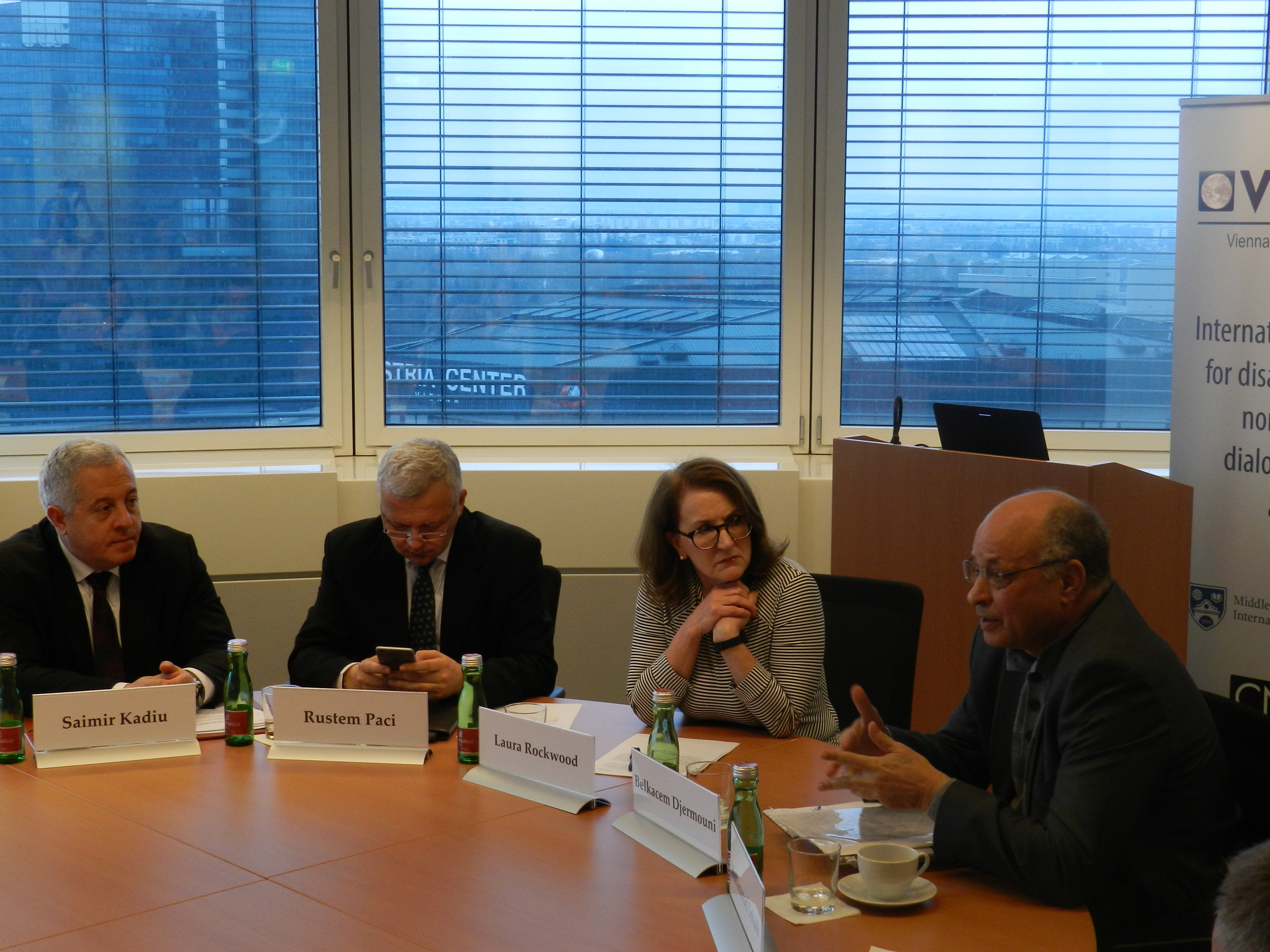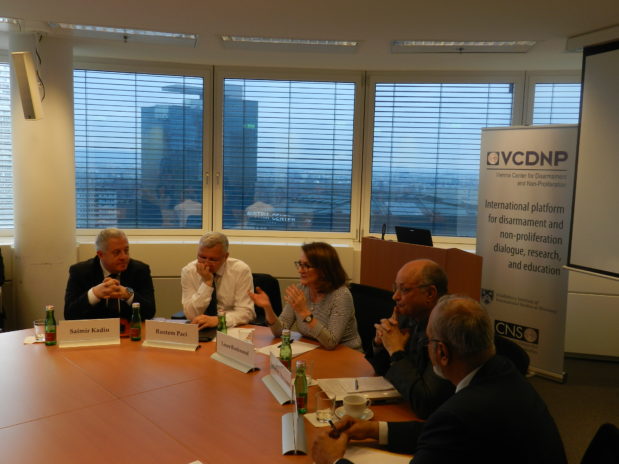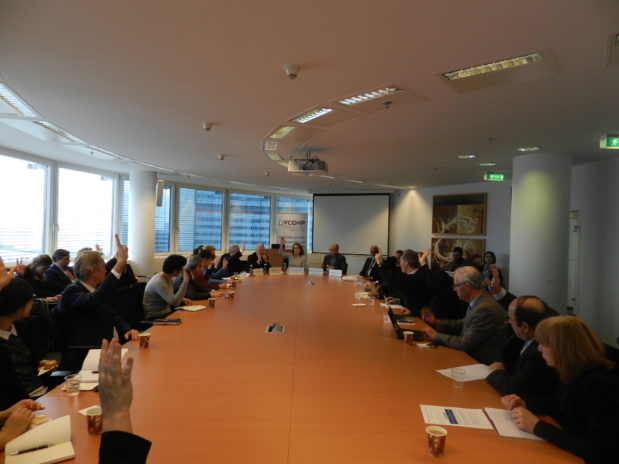
Radioactive sources are used daily in medical, industrial, agricultural and research applications around the world. What is the impact of the use of these sources on sustainable development? What does it take to apply these technologies in a sustainable manner? A panel of experts from Albania, Algeria and Pakistan shared their experiences from the perspective of the government, the regulator and the operator in the medical application of radioactive sources and the important role of the International Atomic Energy Agency (IAEA) in this regard. Laura Rockwood, Executive Director of the VCDNP, moderated the discussion held on 15 March 2018.

As with all technologies, the use of radioactive sources requires that certain conditions be met, principally to avoid or minimize the risks to people and the environment. Safe and sustainable methods for their handling are thus essential. In Albania, the Radiological Protection Act, a bill passed by the parliament in 1995, initiated the establishment of a safety infrastructure for managing radioactive sources. The Act aimed at eliminating potential hazards and promoting sustainability. The Radiation Protection Office was established in the Ministry of Health as the executive body to develop management practices for the safe and peaceful uses of radioactive sources. Albania’s regulators and other practitioners are firmly of the view that a well-established legal basis will continue to help their long-term management of radioactive sources and ensure the beneficial use of the sources in their country.
Since 1995, amendments to the Radiological Protection Act have been made to address the security of radioactive sources used in health care activities. Dr. Rustem Paci, the Head of Radiation Protection Office of the Institute of Public Health, emphasized that the concepts of safety and security were closely linked. With the increased independence of regulatory bodies for radioactive source management, Albania now takes greater responsibility for securing the sources. Saimir Kadiu, the Director of Budget and Investments with the Albanian Ministry of Health and Social Protection, said that the Government of Albania strongly supported the implementation of regulations to manage radioactive sources. Mr. Kadiu spoke of the Government’s commitment to public health and demonstrated Albania’s increased investment in the health care sector, in particular with regard to the introduction of new linear accelerator technology in radiotherapy.
Adequate and appropriate management of radioactive sources has positive public health consequences. Dr. Muhammad Sohaib, the Director for Medical Sciences in the Nuclear Medicine and Oncology (NM&O) Division of the Pakistan Atomic Energy Commission (PAEC), presented Pakistan’s efforts in such management, making progress towards sustainability. In Pakistan, registration works as a mechanism for the safe and secure management of radioactive sources. Pakistan maintains a national database in which all users of radioactive sources are obliged to register, including hospitals in the public sector. A license for the use of such sources is only granted upon registration. In this way, any loss or misplacement of sources can be traced.
Throughout the discussion, education was explicitly mentioned as an indispensable element for a sustainable future. The importance of educating all stakeholders was highlighted and training of personnel was also underlined. According to Dr. Paci, it is imperative to understand both the legal and technical aspects in regulating and managing radioactive sources. In this regard, the government concerned as well as individual users of such sources must hold a responsibility together and learn their way forward. Dr. Sohaib concurred, citing his Department’s training courses for radiation protection officers. The courses offer practical guides and emergency response exercises.
The IAEA has worked on training for capacity-building on the global level. Dr. Belkacem Djermouni, who led the IAEA Model Projects for Radiation Protection Infrastructure as a Regional Manager, spoke of the importance of the competence of and ownership by the stakeholders. He addressed the diverse needs of States in managing radioactive sources and the IAEA’s efforts to support them by providing a wide range of training and educational courses. States have different types and quantities of radioactive sources they have to manage and the perspectives regarding the safe and secure management of the sources may differ given the country’s circumstances. In Dr. Djermouni’s view, the commitment of the State concerned played the most critical role in creating an integrated approach and improving the safe and secure management.
Comments and questions followed the panel presentations. In the course of which reference was made to the importance of training courses for capacity-building, in which a speaker referred specifically to the regional meetings for education convened by the IAEA. At some of the meetings, parties from Pakistan and India had opportunities to come together and exchange views. Other audience members spoke more of the examples of training courses that are organized globally by the international agencies. Another commenter suggested that raising public awareness about the peaceful uses of radioactive sources would help increase public support for policy implementation.
